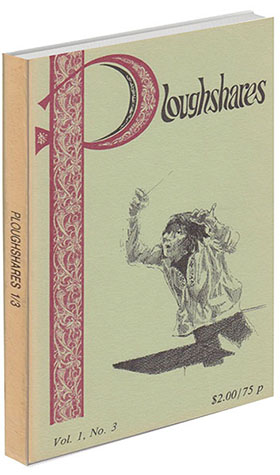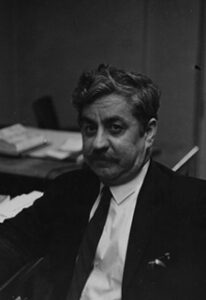rev. of Judah the Pious by Francine Prose
"Novel" seems somehow the wrong term to apply to Francine Prose's first book; and "first novel" seems even more unfortunate, connoting as it so often does, grandness of purpose and lack of artistic control. Rather,
Judah The Pious is a tale, a story within a story, almost a legend. The writer's art lies in the skill with which the tale is unfolded; one would do violence to the work to speak of layers of meaning. In a way, the book is about stories — why we make them up, why we tell them, why we are so entranced by the storyteller's "and then. . .and then. . .and then. . ."
In the eighteenth century, Rabbi Eliezer makes a bargain with the young king of Poland to save his people from a threatened pogrom. If he can convince the bored and agnostic king that life is a mystery, full of strange and inexplicable happenings, the Jews will be spared. And so the Rabbi beings the story of Judah Ben Simon the young skeptic, and of Rachel Anna his beautiful, unearthly wife. One bizarre event follows another as Judah attempts to reduce first all nature (he is a naturalist) and then all human behavior to a set of rigid and orderly laws. When his wife gives birth during his absence to a child she claims she conceived in a dream, he leaves her, vowing never to return until he has witnessed something even less in accord with the laws of nature. He becomes a mountebank, a charlatan doctor, and travels all over Poland on his quest. At last, after many adventures, he is forced to confess his bewilderment and goes for help to Judah The Pious, the great wise man of Cracow. And through Judah he
learns that "there are a thousand miracles in the air above my head, but I have no desire to reach up and grasp them".
There are echoes here. First of all and most obviously I think of Isaac Bashevis Singer, but also of Isak Dinesen, Gabriel Garcia Marquez, even of Hermann Kleist's
Marquise of O-. At first reading, I wondered if Ms. Prose could flesh out her fantasy with enough historic specificity to make it hold together in the reader's imagination. After all, not every event can be miraculous; even in a fairy tale the husband and wife sit down to dinner and talk about the crops. Singer's most supernatural tales are informed by a wealth of precise, experienced knowledge of life in the Jewish settlement of Poland. The more fantastic his narrative, the more tellingly he seems to observe, the more acutely to remember. Marquez' Macondo may not be on any geographical map, but it is securely positioned on the map of Latin American history.
About Francine Prose's Poland I'm not so sure. Gaps in her knowledge — of the century (17? 18?), of Jewish customs — force her to improvise, sometimes with great charm, but not always convincingly. (At no time, including the present, did religious Jews go for picnics on the Sabbath; nor were Polish Mayors elected.) Toward the end, as the pace of her story quickens, she seems to lose her interest in the homely, accurate detail. The last sixty pages or so seem to me to suffer from a too-heavy burden of fantastic elements.
And yet what fine elements they are! The wedding of Judah ben Simon and Rachel Anna after two years of living together in the forest is like something out of a Botticelli painting. The ancient scientist Boris Silentious, Jeremiah Vingrad the charlatan, the three aristocratic ladies courted by Judah, each of whom is more beautiful and more capricious than the last — all are fitting elements in a story like this one, and all have stories of their own to tell. Somehow Ms. Prose unfolds her story so that we are always surprised, and yet, as in fairy tales, somehow we knew all along what would come next. And in this knowing, too, in the anticipation of hearing what we know has to happen is the key to our attention.
Judah The Pious is clearly an unusual work, especially when one considers that its author is still in her mid-twenties. Of how many novels, of how many short stories does one even remember what happened a month after reading the last page? But "what happened" is the essence of Ms. Prose's art, the center of her concern as a novelist. Her extraordinary narrative gift has resulted in a book that I have not found easy to forget. And yet why should that be so strange? If one must speak of meanings, surely what Ms. Prose is saying is that our lives are stories, the meaning of which is real but useless to seek; but in whose sudden reversals, twists of plot and recurring themes we can nevertheless delight.

